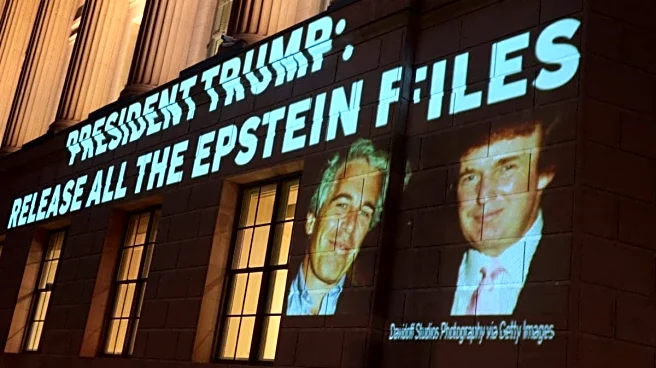The United States Congress has acted decisively to mandate the public release of all unclassified Justice Department files relating to the convicted sex offender, Jeffrey Epstein. In a rare and striking
display of bipartisan unity, the House of Representatives approved the “Epstein Files Transparency Act” by an overwhelming margin of 427 to 1, followed almost immediately by a unanimous consent agreement in the Senate to pass the bill once officially transmitted. This action effectively sends the legislation directly to President Donald Trump’s desk, who has indicated he will sign it, bringing an end to months of political wrangling and public pressure.
The move marks the culmination of a months-long effort led by a small, bipartisan group of lawmakers who sought to circumvent opposition, which had included the President himself and House leadership who previously dismissed the focus on the files as a “hoax”. The critical turning point came when a discharge petition garnered the necessary signatures to force a vote, leading to a quick reversal of position by Republican leadership and the White House. The legislation’s passage demonstrates the immense pressure from the American public and, critically, from the survivors of Epstein’s horrific abuse, who have consistently lobbied Congress for full transparency and accountability.
The Act compels the Justice Department to make public all unclassified records, documents, communications, and investigative materials held by the Department, the FBI, and US Attorneys’ offices relating to the investigations and prosecutions of Epstein and his co-conspirator, Ghislaine Maxwell. The law requires this disclosure within 30 days of its enactment. Critically, while the Justice Department will be permitted to redact information that would compromise ongoing federal investigations or the personal details of victims, the bill explicitly prohibits the withholding of information based on concerns of “embarrassment, reputational harm, or political sensitivity”.
The unreleased files, which are reported to contain a massive trove of digital and physical evidence, including communications, bank records, and witness interviews, are highly anticipated by the public. While the Justice Department has previously stated that it found no “incriminating ‘client list'” or credible evidence of blackmail, the disclosure is expected to shed further light on the extent of Epstein’s operations and the identity of powerful individuals with whom he associated, who have thus far remained shielded from public scrutiny. For the survivors, the passing of the bill represents a watershed moment in their years-long quest for justice and a complete accounting of the criminal enterprise.


/images/ppid_a911dc6a-image-177090552977584362.webp)

/images/ppid_59c68470-image-177090530594986069.webp)

/images/ppid_59c68470-image-177090503458393910.webp)
/images/ppid_59c68470-image-177090512191059170.webp)
/images/ppid_59c68470-image-177090521111597610.webp)
/images/ppid_59c68470-image-177090526699467667.webp)
